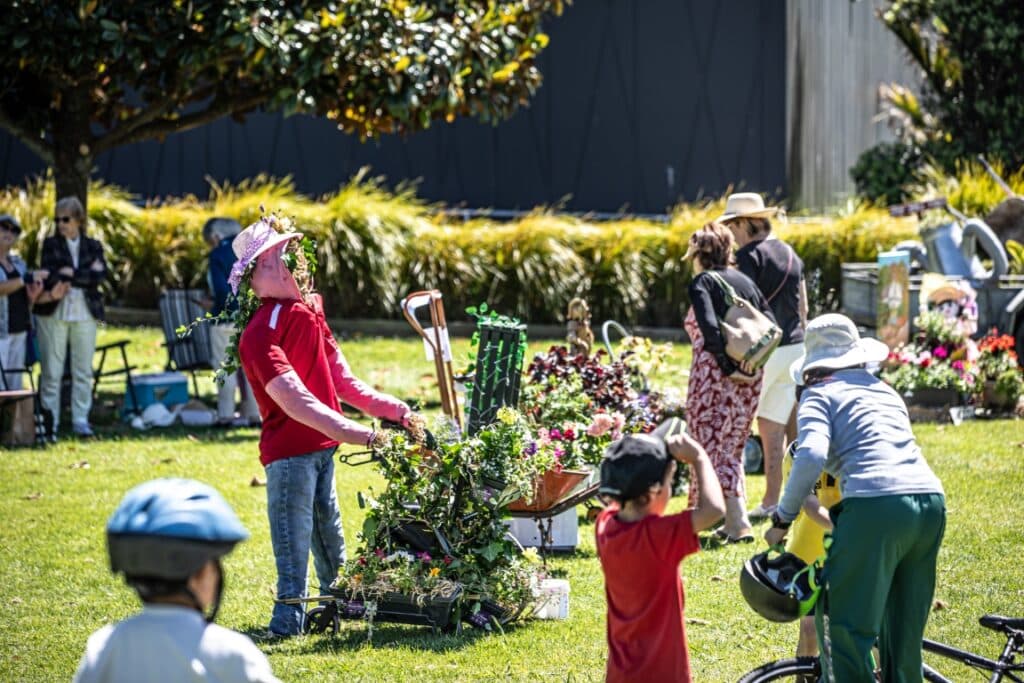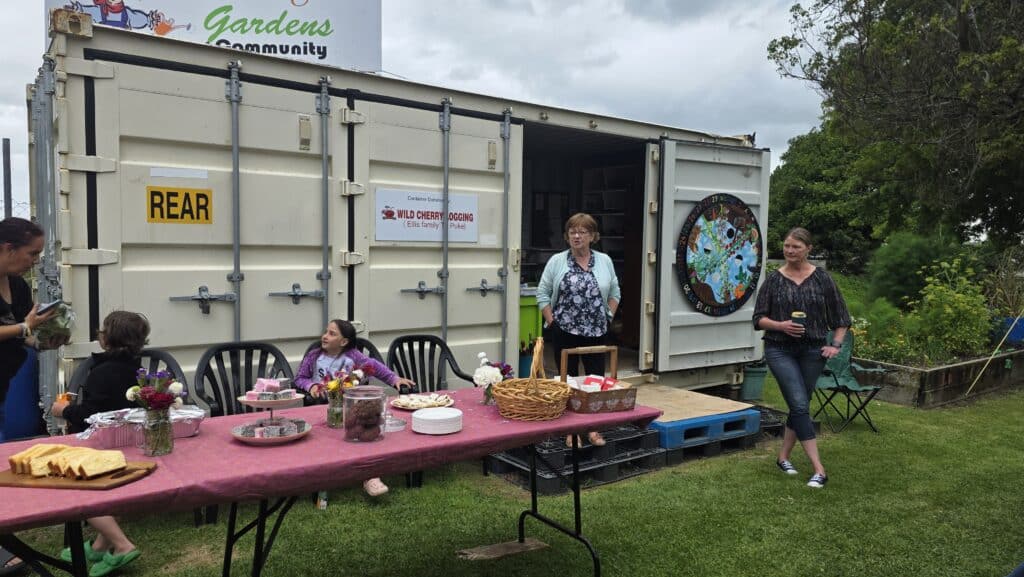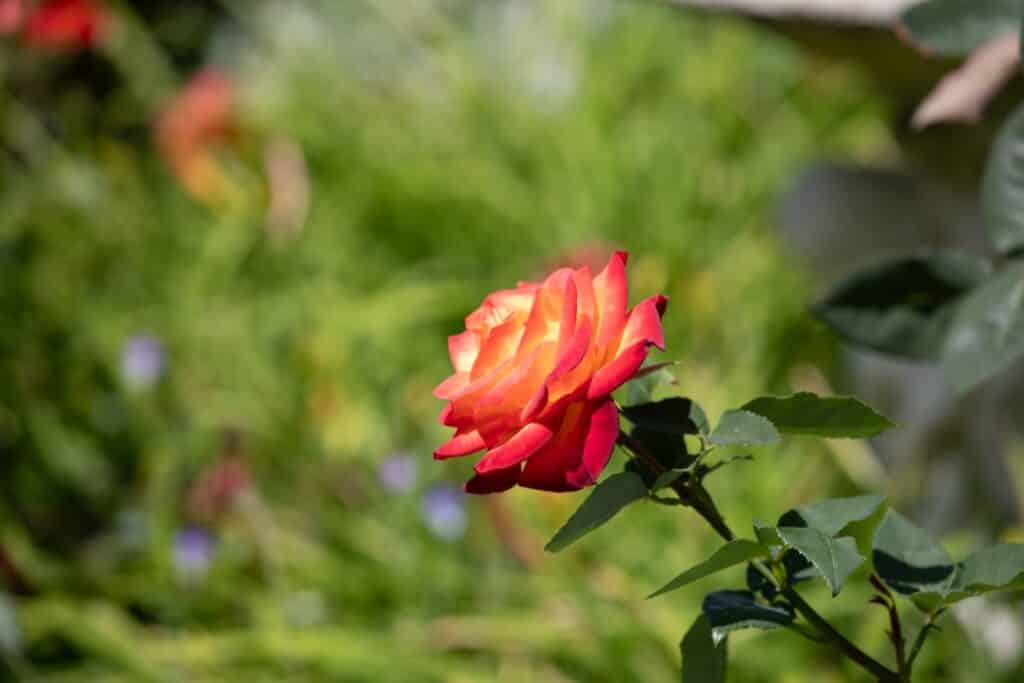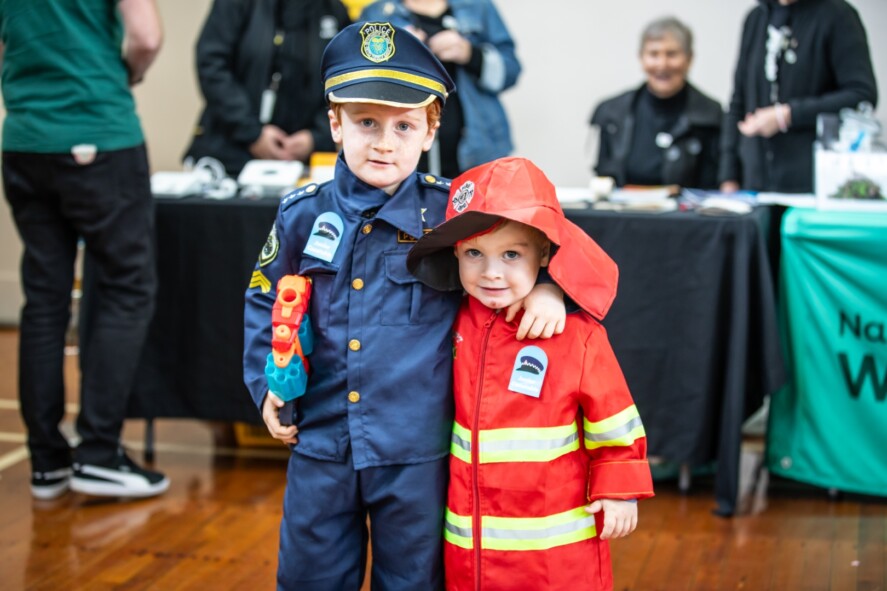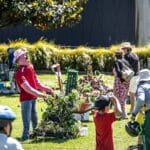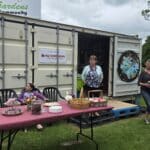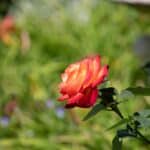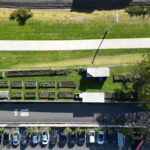Now Reading: Cultivating Community and Crops: Our Visit to Bay Tropics
-
01
Cultivating Community and Crops: Our Visit to Bay Tropics
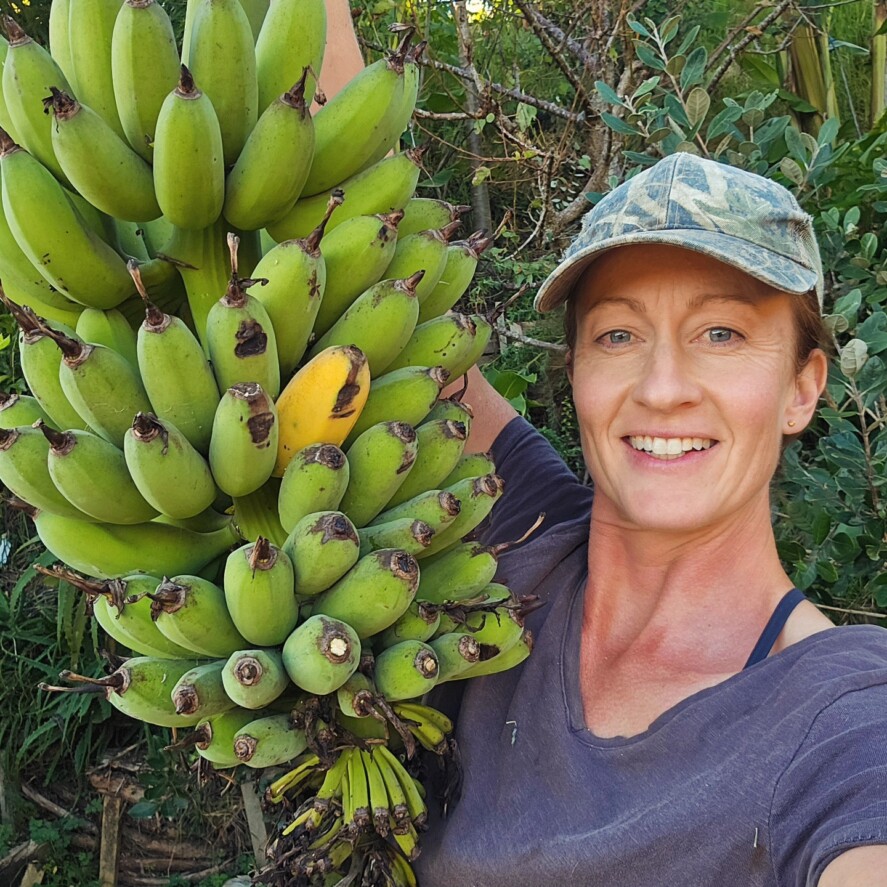
Cultivating Community and Crops: Our Visit to Bay Tropics
Our team at Vector Group has always been inspired by those who aren’t afraid to get their hands dirty and forge a new path. So, when the opportunity arose for the Vector Group Charitable Trust to visit Bay Tropics, an innovative orchard in Oropi, we jumped at the chance. It was a day of productive plant swaps, inspiring conversations, and a deep dive into the fascinating world of sustainable horticulture—complete with a very busy assortment of free-ranging feathered friends.
The story of Bay Tropics is a testament to the power of passion and the willingness to learn. Owners Rebekah (Beks) Vlaanderen and Graeme (Hoppy) Hopcroft bought their 9-hectare property with little prior experience in farming. For Beks, it was a leap from a career in IT to the demanding world of horticulture, a move she’s never regretted. Their journey is far from a fairy tale. They’ve faced the harsh realities of commercial growing, most notably the devastating impact of passionfruit wilt, a fungus that has wiped out many local orchards.
Instead of giving up, Beks, has been instrumental in trialing new, wilt-resistant rootstocks. Simultaneously, they’ve diversified their crops, successfully growing tamarillos, bananas, and chillies alongside their passionfruit. This proactive and resilient spirit is at the core of what makes Bay Tropics so inspiring—they don’t just accept problems; they actively seek solutions.
A Fowl-Proof Approach to Farming
This problem-solving philosophy extends to every aspect of their farm management, particularly their approach to sustainability. Our visit revealed a meticulously planned food forest, a stunning passionfruit setup, and a large area of native bush and wetlands that the couple has lovingly planted. But what truly captured our attention was their unique and surprisingly effective use of poultry.
On their half-hectare orchard, Bay Tropics is home to a delightful and industrious flock of Muscovy and Pekin ducks, chickens, and even a few vigilant guinea fowl, all free-ranging. Beks and Hoppy initially introduced them with a clear purpose in mind: natural pest control. The original idea was to enlist these feathered workers to help with slug and snail control, provide a constant supply of natural fertilizer, and assist with weed management, all without the need for synthetic sprays.
They started with about 10 Muscovy ducks, 10 Pekin ducks, and 6 guinea fowl. Initially, they deliberately avoided chickens, a common choice for gardeners, due to their reputation for being more destructive. They were concerned about the chickens’ tendency to dig and potentially damage the soil and plants.
However, over time, their approach evolved. They brought in more ducks (which, as ducks do, happily multiplied) and decided to carefully integrate chickens into the mix. To manage the chickens’ destructive tendencies, they’ve implemented a clever and labor-intensive system. The chickens are contained by a temporary fence, granting them access to just one row of passionfruit at a time. Every couple of days, Beks and Hoppy move the fence and the coop to a new row. This rotational grazing limits the damage the chickens can do to the soil and plants while still allowing them to perform their valuable work of pest and weed control.
The daily life on the orchard now includes a few extra chores: collecting the daily bounty of eggs, cleaning the coop when needed, refilling water troughs, and feeding the flocks twice a day. It’s a lot of work, but the rewards are tangible.
So, after this careful experiment, what have Beks and Hoppy found about keeping poultry for pest control? The verdict is overwhelmingly positive. While it requires a significant time commitment, the birds provide an invaluable service. The Muscovy ducks in particular have proven to be excellent slug and snail hunters, and the constant fertilization from the entire flock contributes to the health and vitality of the soil. The rotational grazing system with the chickens has allowed them to reap the benefits of their weed control without the negative side effects.
The visit to Bay Tropics was more than just an exchange of plants; it was a powerful reminder of how innovation, a deep respect for nature, and a little creative problem-solving can transform a business and a lifestyle. Beks and Hoppy are not just growing fruit; they’re cultivating a sustainable, resilient, and inspiring model for the future of horticulture in our community. We encourage everyone to follow their journey and see the incredible things that can happen when you unlock a true passion for plants—and a little help from a dedicated flock.



